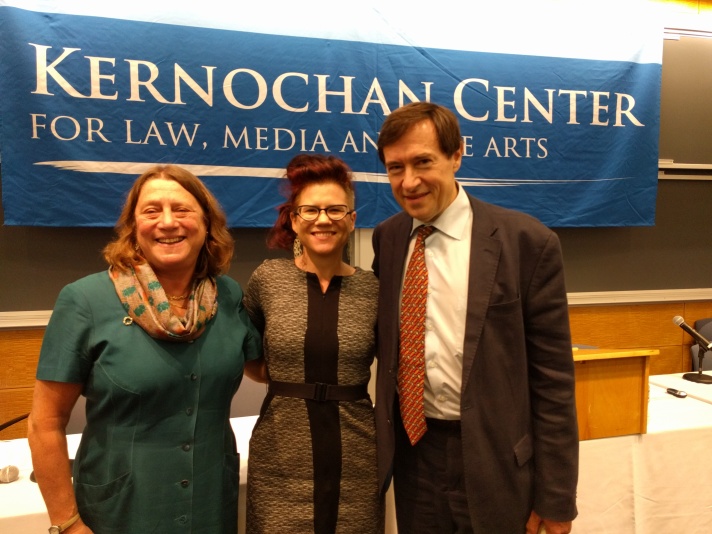On October 6 2017, Columbia Law School’s Kernochan Center held a Colloquium tied in to the launch of the Author’s Interest project. Professor Sam Ricketson and I delivered the keynotes. Sam’s address explored the ‘wriggle room’ left to us within the international copyright treaties for achieving meaningful reform. Mine described the possibilities for an alternative copyright bargain within the confines of the (effectively unamendable) treaty framework: one that would do a better job of both getting authors paid and reclaiming some of the culture lost under current approaches.

Our first panel after the keynote session was ‘Improving copyright for creators’. The broad and long grants mandated by the treaties are often justified as favouring authors, but in fact they largely benefit owners. This panel focused on copyright’s scope to improve economic returns for those actually creating the works on which the whole system relies.
Our international line-up of speakers offered a rich range of expertise. We heard from:
- Séverine Dusollier (SciencesPo, Paris) who has written extensively about various author-favouring mechanisms, particularly in European law;
- Martin Senftleben (Vrije Universiteit, Amsterdam) speaking particularly about Dutch and German author-favouring mechanisms (such as the German ‘bestseller clause’);
- Jane Ginsburg (Columbia Law School, NYC) speaking about the US ‘termination right’ (which enables authors to reclaim their rights after a certain period) and private international law implications – tying in with the current Duran Duran controversy;
- Mary Rasenberger (the Authors Guild) speaking about some of the fundamental challenges facing authors today;
- Ruth Towse (Bournemouth University and a fellow Fellow of CREATe) providing critical insights from her distinguished career as a cultural economist.
The panel was lively and instructive and well worth watching.
The day’s other panels – on ‘Facilitating Transactions and Lawful Availability of Works of Authorship’ and ‘Remedies, Enforcement and Territoriality’ were also highly informative – you can find them here (together with all the related slides).
One thought on “Columbia Law School Colloquium: Improving copyright for creators”